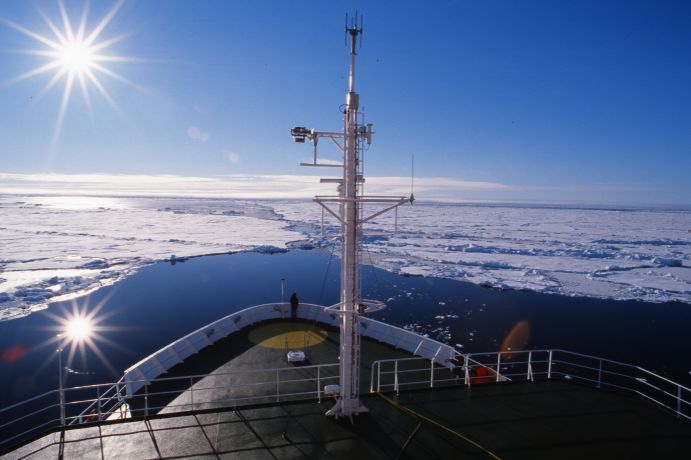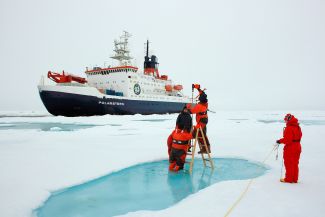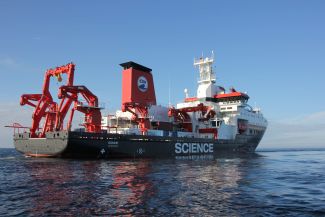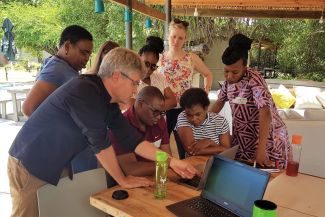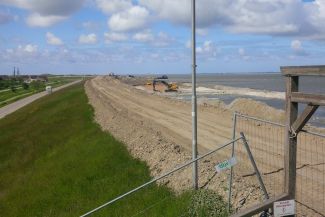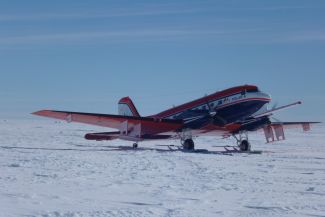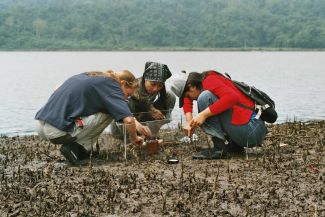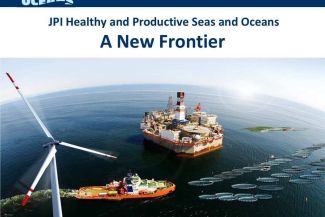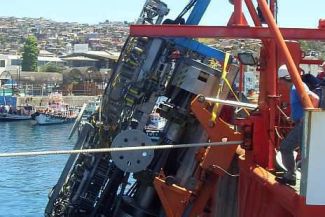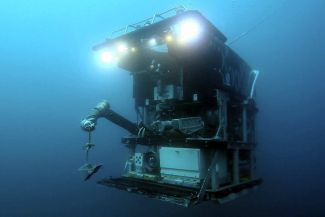MARE:N: Coastal, Marine and Polar Research for Sustainability
Oceans constitute the largest habitats on earth; they cover over two thirds of the earth's surface. This is why protecting the oceans is of the utmost importance. The future of our planet depends on how responsibly we manage our environment and the oceans, and research is essential for this. Germany has one of the most modern fleets of research vessels in the world. The "MARE:N - Coastal, Marine and Polar Research for Sustainability" research program is funded by the German Federal Ministry of Research, Technology and Space (BMFTR) for the purpose of protecting our seas, coasts and poles.
What role do oceans play in storing heat and carbon dioxide, and how do rising sea levels and a changing climate affect coastal regions? What are the consequences of the littering and acidification of the oceans in terms of biological diversity and providing for the needs of humanity? These and other questions are at the heart of marine research. The challenge lies in maintaining the ecological balance of the marine and polar regions and securing the use of natural resources and ecosystem services in the long term for both current and future generations.
Coastal, marine and polar research is expected to confront these challenges during the coming decades and find preventative solutions. In this sense, it can be thought of as future-oriented, comprehensive "preventative research" which is geared toward innovation. Global challenges call for interdisciplinary research approaches. They provide insights which enable us to assess changes and formulate forecasts for the future of our planet.
Federal Research Minister Dr. Johanna Wanka introduced the Federal Government's new research program, "MARE:N - Coastal, Marine and Polar Research for Sustainability," in June, 2016. Under the umbrella of the Research for Sustainable Development Framework Program (FONA), MARE:N has formulated new joint objectives for future research funding in the coastal, marine and polar regions. At the same time, Mare:N is initiating a dialog on research policy with experts from research institutes, business, civil society and government in order to develop solutions for the future of the oceans and seas based on reliable information.
Understanding the World Oceans
Seventy percent of the earth's surface is covered with water. But we still know relatively little about this largest of all habitats. Along with the atmosphere, the oceans play the driving role in climate change and the mass balance of the Earth. Climate research is inconceivable without strong marine and polar research. Polar research enables a reconstruction of the climatic history from our planet's great ice sheets. If we want to protect our coasts from storm surges and the hazards caused by rising sea levels, we must understand the physics, chemistry and biology of our oceans.
Germany has one of the most modern fleets of research vessels in the world and therefore recognizes its responsibility to provide for the future. The German research vessels, which cruise the oceans and polar regions conducting research, are an important component of international science partnerships. As platforms for joint scientific studies, the research fleet is making an important contribution to the development of international relations.
Protecting Vulnerable Coastal Regions
Coastal areas are of great importance as habitats, natural environments and economic areas. Along with their watersheds, they form the interface between land, sea and society. Seventy percent of the world's population lives near the coast. Climate change is causing an increase in the frequency of extreme events, such as storm surges, which endanger the vulnerable coastal regions. Added to this is the rise in sea level due to the warming of the sea water and the melting of the ice masses. The development and improvement of early warning systems for natural hazards are imperative for our adaptation to the effects of climate change.
The population of coastal areas is increasing the world over. Consequently, the coasts are typified by such features as the construction of renewable energy plants, shipping, road construction and tourism. At the same time, however, they also constitute a unique habitat for plants and animals and an important cultural and natural inheritance for mankind. The sustainable development of the coastal regions confronts society with the challenge of using natural resources under the conditions of global change while preserving them for future generations. In response to this challenge, research findings yield data and can be used to identify possible solutions which can serve as a basis for the design of a successful environmental and economic policy.
Sustainable Use of Raw Materials
Research in the geosciences will play a decisive role in terms of future raw material and energy needs. Therefore, subterranean geology is gaining in importance in its role as a reservoir and storage facility, a source of energy and a repository. The sustainable use of the subsurface requires research in many areas such as geological exploration and the development of monitoring methods. The demand for the exploitation of marine resources in the sensitive deep-sea and polar regions will also continue to increase. International standards must be set in such a way as to enable responsible and sustainable exploitation which does not lose sight of the need to safeguard these ecosystems.
The findings of geoscientific research provide the basis for insights into the complex dynamic processes of our earth. The natural disasters arising from these dynamic processes are usually associated with high losses of human life and property. While the damage caused by terrestrial earthquakes is mostly limited to specific regions, seaquakes can also cause damage on distant shores. Accordingly, geoscientific research has made important contributions to civil defense against natural disasters with the development of forecasting instruments and early warning systems.
"Seas and Oceans" Science Year
In June, 2016, Federal Research Minister Wanka opened the "Seas and Oceans" Science Year with the motto "Discover. Use. Protect." The 2016/17 science year provided a platform for discussing opportunities and challenges in the context of marine and oceanographic research to coastal residents, consumers of maritime products, marine researchers and anyone who was interested in the topic and wanted to learn more.
The publications of the Federal Ministry of Research, Technology and Space can be ordered here free of charge.
For an insight into the current topics of German coastal, marine and polar research, take a look at this film.
Last updated on




